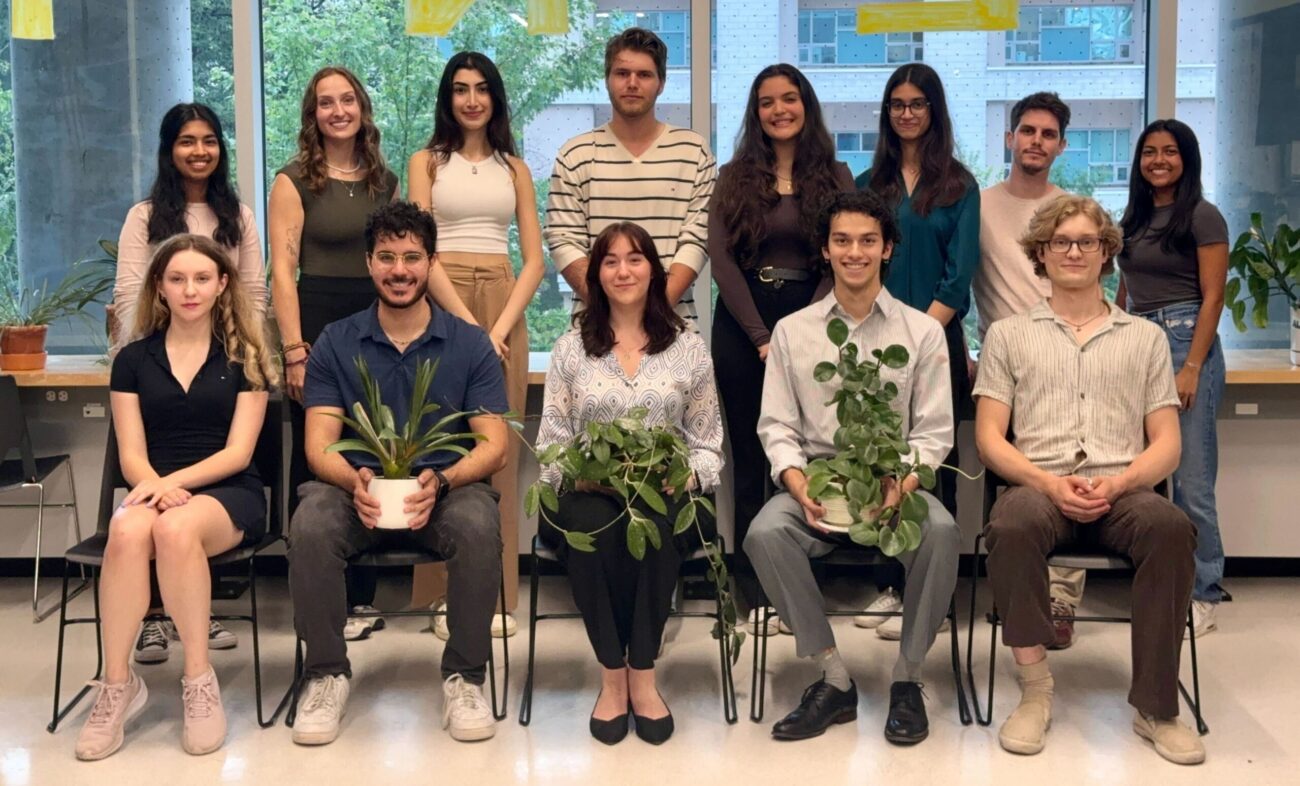THE CLUB’S SUBMISSION FOR PARIS 2024 REVOLVES AROUND A PLANT-BASED OZEMPIC
Hold on to your lab goggles, because the University of Ottawa’s International Genetically Engineered Machine (iGEM) club is doing something you’d never expect. These bio-innovators are growing Ozempic in plants.
This group of individuals in synthetic biology isn’t just playing around in the lab; rather, they are changing the way we approach medicine, research, and even space exploration. Not to mention, they’re taking their skills to the international level. That’s right, Paris, here they come!
Co-presidents Teagan Thomas and Victor Boddy, both fourth-year students in biomedical sciences and biotechnology, sat down with the Fulcrum to talk about their research group and all the exciting things they have planned for the year.
Biology Meets Innovation: Synthetic Biology
“A lot of people hear synthetic biology, they don’t know what that means, or what it entails,” shared Teagan. Let’s start with the basics: synthetic biology. Combining engineering principles with a focus on living systems and organisms, synthetic biology is a multidisciplinary field of study that aims to either create new biological components, tools, and systems or modify naturally occurring systems.
What’s iGEM All About?
iGEM, originally established as a course at the Massachusetts Institute of Technology, has developed into one of the most prominent platforms for young engineers and scientists to present their synthetic biology research.
For the uninitiated, iGEM represents the pinnacle of synthetic biology exploration. Students from institutions all over the world come together to apply creativity, engineering, and biology to tackle real-world issues. And let’s just say, the iGEM team at the University of Ottawa isn’t playing it small this year. “We’re excited to compete,” Thomas told the Fulcrum.
Paris-Bound for the 2024 Grand Jamboree
Let’s not bury the lead, though. iGEM is flying to Paris! In preparation for the 2024 Grand Jamboree, a large international competition where teams from all over the world showcase their research, mingle with leading scientists, and showcase their insane talents in synthetic biology, they are packing up their petri dishes and plant-growing Ozempic experiments.
“I think there’s around 435 confirmed teams from around the world that are going. So it’s a really big conference, and we’re super excited to have the opportunity to go,” said Thomas. Coming together with more than 400 teams from 50 countries, this is the science Olympics, and the University of Ottawa’s team will be ready to show off their expertise in synthetic biology.
The Phytogene Project
What is iGEM now working on, then? Meet Phytogene, a project that sprang from desperation after Canada’s recent Ozempic (a semaglutide weightloss drug) shortfall. After becoming popular as a weight-loss medication, Ozempic, which originally was created for type 2 diabetes, caused a national scarcity, depriving diabetics of their prescribed medication.
“We were inspired by the recent Ozempic shortage,” Thomas explained. The team’s goal is essentially to find a way to grow the drug using eco-friendly synthetic biology methods.
Thomas broke down their process: “We basically found the DNA transcript for Ozempic, and we put that inside of bacteria, which then multiply that transcript, and then we put that transcript in plants. So, it’s kind of a novel thing that we’ve been investigating—using eco-friendly synthesis methods.”
Simply put, the team is making Ozempic from plants. This groundbreaking approach could be a long-term fix for the scarcity of weight-loss drugs being manufactured in the future.

Teagan Thomas and Victor Boddy, fourth-year students studying biomedical sciences and biotechnology, and co-presidents of iGEM at the University of Ottawa sat down with the Fulcrum to talk about their ideas for the upcoming year. Photo: iGEM/Provided
iGEM’s Outreach Mission
That said, synthetic biology involves more than just lab research. iGEM is committed to science education and outreach, bringing science to all ages. “We’re very passionate about spreading synthetic biology awareness and just kind of educating the public on it, since it’s kind of a newer field,” Thomas said. The team has been quite active in retirement homes, summer camps, and soon, high schools and libraries. They would love to inspire the next generation of scientists.
Thomas and Boddy are focused on building a lasting legacy for iGEM at the U of O. “We’re really trying to build and foster a long-winded history of iGEM at [the U of O],” said Thomas. “Future members get to look forward to the jamboree.”
In an effort to draw in new members, iGEM is currently planning an open house for November. They want you to get involved, whether you’re interested in science or you’re a future biologist. “We’ll have lots of information for prospective students, as well as plenty of events and opportunities for new recruits,” Victor shared.






